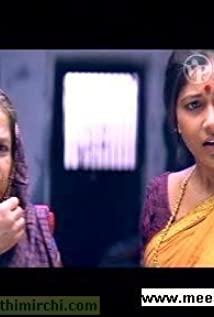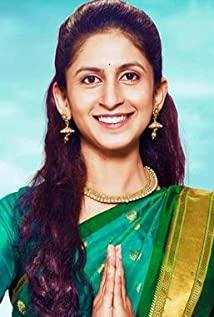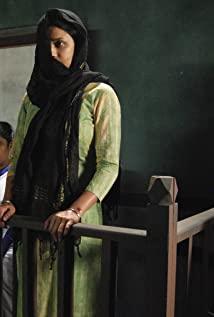The hidden cultural easter eggs in the Indian partners are very rich in ancient Indian cultural resources. Although this film is a modern film, there are still many hidden cultural easter eggs in it. If you take a closer look, you will be able to understand the film better. Wife's feet When I saw the man hid under the bed and kissed his wife's feet at the beginning, I couldn't help but smile knowingly. In Indian culture, a person's feet are the dirtiest place. But if a person is willing to touch your feet, it means that they are very respectful to you. In Indian culture, there is a foot-touching ceremony for priests or elders, that is, bending over to touch each other's feet to show respect. In the opening chapter, the male protagonist touches his wife's feet, which shows that in the male protagonist's heart, you are my god. hand and foot festival When the male protagonist visited his sister's house on Diwali, the sister tied a rope around his wrist, and then the male protagonist said, "I will give you money twice a year, once for Brotherhood and once for Diwali." Menstruation soon came, and the story officially began. Brother and Foot Festival is one of the traditional festivals in India. One of the legends is as follows: The Black Princess and Krishna consider each other brother and sister. One day the Black Princess came to menstruation (menstruation at that time meant that it was the period of conception). The bad guy dragged her to the center of the auditorium, then the bad guy pulled her clothes to strip her and humiliate her, Krishna lowered the endless sari and wrapped the black princess, protecting her respect. The black princess was grateful for the brother and sister's affection and tied a rope around Krishna's wrist. From now on, on this day, sisters in India will tie a rope to their brother in memory, and believe that the rope will dispel bad luck. Diwali does not appear in the film, but its background is also associated with women. In the Ramayana, Rama's wife Siddha was kidnapped by the devil. Rama finally defeated the devil and rescued his wife after untold hardships. In order to commemorate Rama, the people designated this day as Diwali. On this day, countless bright lamps will be lit to welcome Rama's return. Men and women are originally one. When the male protagonist was a guest at Parry's house, Parry's father said that he went to study cooking for Parry, and then concluded: "A great father is also a mother, and men and women are one body." ) This also hides a small culture. Shiva, the greatest god in Hinduism, was originally a male and female. Later, in order to create all things, he separated the maternal part of his body and became the goddess Shakti. After Shiva lost part of his motherhood, the spirit was thrown into chaos. And the way to get him back to normal is to reunite the male and female gods. So, the gods in the sky joined forces and finally reincarnated Goddess Shakti as Goddess Sati and Goddess Parvati, and married Shiva. After the two main gods, male and female, finally merged into one in the form of marriage, the world returned to peace. But the goddess Shakti also has a masculine side, and she appears in Hindu mythology many times in the form of a female god of war. (I am not one of the gods of medicine, the black goddess that Xu Zheng saw in the thick fog is the fighting form of Shakti - Gali) Shiva is a male and female, so in Hinduism, there is a goddess called the half female World Honored One, That is to say, the statue is female on one side and male on the other. This form also appears in painting and dance. In addition to Shiva, Vishva, another of the three major gods in India, is also bisexual, and his female form is called Mosini. Asura once stole the nectar from the heavenly treasure, Vishnu turned into a woman, danced to tempt Asura, and took the opportunity to get the nectar back. In addition to using the beauty of women In addition, Vishnu did not let go of the fertility of women - in some legends, Vishnu also turned into Mosini and had sex with Shiva, giving birth to Harihana. When women are strong, the country can be strong. In his final speech, the male protagonist suddenly said: "It's useless when men are strong, women are strong, mothers are strong, sisters are strong, and the country is strong." Strong women and strong countries Hooking, on the surface, is very "pseudo-feminist" (not a bar, the author thinks that men and women jointly determine whether a country is strong), but in fact, what he really means is "what determines a country is not its external strength, but its virtue. And virtue depends on how the country and society treat women." There is also a classic dialogue in the 2013 TV series of the Mahabharata, a national treasure of India. A patriarchal king asked the priest to give him a son. The priest said, "You can have a son, but you must buy one for one and give you a daughter." The king said indifferently: "I want a daughter to have a daughter. What's the use?" The priest replied: "You are wrong, a daughter is better than a son, a daughter can repay you with kindness and social virtues, a son can at most bring his own family into the right path, and a daughter can bring the whole world into the right path. The right path. The birth master Daksha had many daughters, and it was his daughters who gave birth to many descendants that made the world prosperous." (Written from memory) A woman in India means virtue and righteousness, and harmony with the Chinese In stark contrast, Indians believe that in order to maintain the justice and order of the world, no matter how much blood is shed, no matter how many people die, it is worthwhile. The essence of "Mahabharata" is a story of a woman and Dharma. The legendary story of the god Vishnu going down to earth to help the widow Kunti get her property: Kunti married King Pandu, the king of the elephant city, but when King Pandu was hunting one day Unfortunately, he accidentally injured the immortal, and the immortal cursed him to die once he had sex with a woman. King Pandu chose to exile himself for killing the immortal to atone for his sins, and handed over the kingdom to his uninherited brother. But since the elder brother has no right of inheritance, only he has the right to inherit, and he must give birth to a son. The book version of King Pandu lamented in the mountains and forests: When a person is born, he bears four kinds of debts: to the gods, to ancestors, to society, and to immortals. The debts of the gods are paid by sacrifices, and the debts of immortals are paid by hard work. Debt, to repay the debt of the society with tolerance, to pay homage to the debt of the ancestors. So he summoned five gods, and he married his wife and gave birth to five sons. After the elder brother occupied the kingdom, he gave birth to 101 sons in one go. In the end, with the help of Krishna, the reincarnation of Vishnu, the five sons of Pandu defeated the enemy and gained the kingdom. Arjuna, the third son of Pandu, was once confused on the battlefield: I saw people die in order to make our five ill-gotten children become kings. Does it all make sense? He tried to lay down his weapon and surrender the king. In order to encourage him, Krishna changed back to his true body Vishnu and said: "What they destroy is nothing but the Dharma, O children of Bharata, once the Dharma weakens, I will create myself and punish the unrighteous. Life and death, you and I, are all false, just a part of the Fa-rectification, part of the Great Way of Heaven and Earth, death is life, life is death, but it is just a part of the Fa-rectification!" Arjuna regained his fighting spirit, and after the dialogue between the two was compiled, it was The famous Bhagavad Gita in ancient India. So in fact, the meaning of the male protagonist is not that the strength of women is linked to the strength of the country, but that a strong country depends on virtue. When virtue is trampled on, women are the first to suffer. When virtue is damaged, women are weak and virtue prevails. Women are stronger. For example, when a difficult enemy seizes a widow's property, it is a practice of virtue, and a country will weaken. And the real Indians should take up arms, don't care about bloodshed and sacrifice, and fight against lawlessness! Because virtue is the cornerstone of a nation! The male protagonist mentioned that the woman is strong, the mother is strong, the sister is strong, the mother is Kunti, and the sister is the black princess, the sister of Krishna. Exactly echoing the Mahabharata. Feminism is not simple. Women are rooted in the heart of each of us. Men and women are one. Women should also be strong, brave and enterprising, and men should learn to be gentle and understanding. Feminism is not just about women, it is also a virtue. If women in a country are bullied on the streets and their property is taken away by others, it is not the matter of the woman herself, but also the matter of the whole society. The decay of the whole society! The strength of a country is linked to the strength of a country, but a strong country depends on virtue. When virtue is trampled on, the first person to suffer is women. When virtue is damaged, women are weak. When virtue prevails, women are strong. When we practice virtue, a country will weaken. And the real Indians should take up arms, don't care about bloodshed and sacrifice, and fight against lawlessness! Because virtue is the cornerstone of a nation! The male protagonist mentioned that the woman is strong, the mother is strong, the sister is strong, the mother is Kunti, and the sister is the black princess, the sister of Krishna. Exactly echoing the Mahabharata. Feminism is not simple. Women are rooted in the heart of each of us. Men and women are one. Women should also be strong, brave and enterprising, and men should learn to be gentle and understanding. Feminism is not just about women, it is also a virtue. If women in a country are bullied on the streets and their property is taken away by others, it is not the matter of the woman herself, but also the matter of the whole society. The decay of the whole society! The strength of a country is linked to the strength of a country, but a strong country depends on virtue. When virtue is trampled on, the first person to suffer is women. When virtue is damaged, women are weak. When virtue prevails, women are strong. When we practice virtue, a country will weaken. And the real Indians should take up arms, don't care about bloodshed and sacrifice, and fight against lawlessness! Because virtue is the cornerstone of a nation! The male protagonist mentioned that the woman is strong, the mother is strong, the sister is strong, the mother is Kunti, and the sister is the black princess, the sister of Krishna. Exactly echoing the Mahabharata. Feminism is not simple. Women are rooted in the heart of each of us. Men and women are one. Women should also be strong, brave and enterprising, and men should learn to be gentle and understanding. Feminism is not just about women, it is also a virtue. If women in a country are bullied on the streets and their property is taken away by others, it is not the matter of the woman herself, but also the matter of the whole society. The decay of the whole society!
View more about Pad Man reviews











